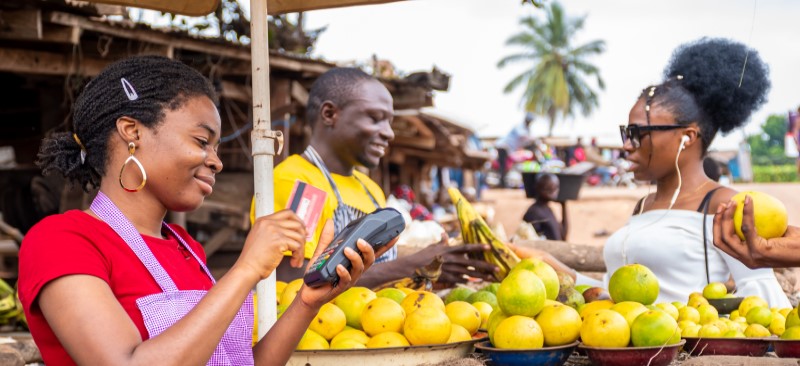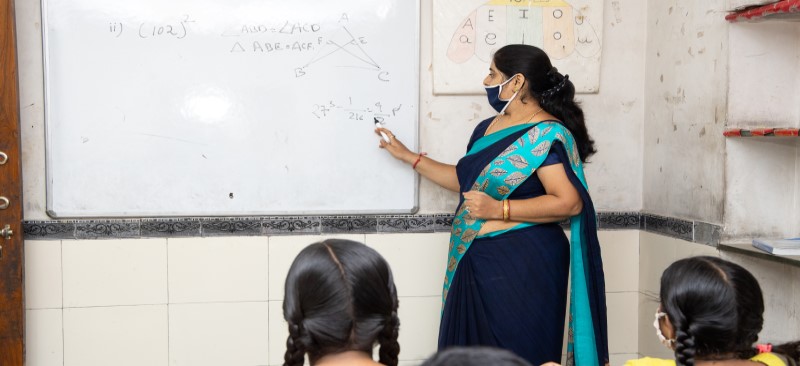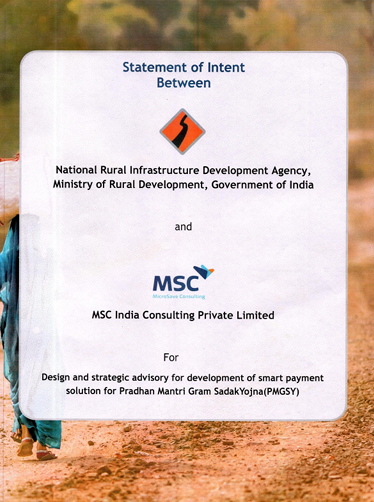The Odisha government has one of the most advanced treasury management systems in India. However, challenges of manual processing of bills, idle parking of funds, and float in the system persist that lead to sub-optimal fund utilization.
MSC is implementing a Just-in-Time funding solution for the finance department of the Government of Odisha. The solution will ensure that the money owed by the state’s implementing agencies (IA) to the end beneficiary or the payee in a public project is paid directly from the state’s treasury in real or near real-time. These could be urban local bodies, autonomous bodies, or NGOs that undertake public or welfare work on behalf of the government. The solution will mark two key departures from the existing fund flow mechanism. Firstly, the ability to draw the funds directly from the state’s treasury will eliminate the need for the IAs to park funds in the commercial bank accounts outside consolidated funds. Secondly, the pull-based funding mechanism allows the IAs to make payments to their payees in real-time.
The benefit of JIT funding is that it will allow the finance department to reduce ‘idle cash’ outside the treasury and optimize borrowing costs. Also, with real-time visibility on cash balances, the administrative burden associated with expenditure reporting and utilization is likely to get reduced.
Click here to go back to the building state capacity website.

Our experience suggests recent digital developments in India around Jan Dhan, Aadhaar, Mobile (JAM), India Stack, direct benefit transfer, payment interoperability, among others, have been relevant to many African and Asian countries. There has been tremendous interest from other countries to learn from India’s achievements, and several countries have replicated some of the lessons from India.
With this backdrop, MSC is keen to explore the challenges in PFM for the African countries and explore if there is a potential to replicate some of the lessons from our projects with Indian governments to other countries. This will help assess the fitment and relevance of the tools and knowledge products produced by our projects for Africa and also enable us to adjust our approach, if feasible, to ensure that the products generated are relevant across several countries beyond India. Through this study, MSC will get some inputs to shape its PFM and state capacity work-related strategy for Africa.
Click here to go back to the building state capacity website.

The Social Security and Empowerment of Persons with Disabilities (SSEPD) Department of Government of Odisha has recommended 50 special schools (which educate differently-abled children) to provide grant-in-aid from the GOI. The grant includes maintenance of residential and non-residential students and remuneration of teaching and non-teaching staff as determined by the GOI.
However, the scheme has faced challenges in terms of payment delays (salaries to the teachers) due to ineffective fund management and ineffective monitoring of the scheme.
MSC conducted a diagnostic assessment of the fund flow system, functioning of the scheme, review of IT systems, etc. Based on these diagnostics, MSC has recommended and is now supporting the government in the implementation of ‘smart payment solutions’ with ‘just in time’ funds, to be integrated with the government’s existing public finance management platforms.
Click here to go back to the building state capacity website.

Pradhan Mantri Gram Sadak Yojana (PMGSY) was launched on 25th December 2000 to improve rural connectivity across India. However, there are various challenges in construction delays, cost overruns, and under-utilization of funds. MSC’s advisory support on smart solutions seeks to offer better ways and means to improve scheme delivery and capacity on the ground, particularly in the context of physical and financial management of the project. MSC supports the National Rural Infrastructure Development Agency (NRIDA), which is responsible for managing and monitoring the flagship program to implement a new range of emerging IT solutions. The project intended to create transparency across the system by enabling key decision-makers to have better observability of data from the sites, traceability of fund flow, and keep a tab on the overall scheme performance.
Click here to go back to the building state capacity website.
MSC’s work with National Rural Infrastructure Development Agency


MSC undertook desk-based research to assess the maturity levels of four African countries—Burkina Faso, Ethiopia, Ivory Coast, and South Sudan, to make biometric-enabled digital payments to polio campaign workers during outbreaks. For this, MSC used its in-house Digital Readiness Assessment (DRA) framework. Critical pillars in the framework include government and policy readiness, infrastructure, and program readiness.
MSC used a subset of the DRA—infrastructure readiness, including digital database and ID, payments system, cash-in/cash-out (CICO) agent network, and digital ecosystem. Program readiness implies the degree to which beneficiaries’ digital database and program design and delivery are ready.
Based on the assessment, MSC made recommendations for three of the five phases of the program life-cycle—enrolment, proof of work, and making payments. A robust digital payment system will enable the governments and key stakeholders to adopt quick, convenient, reliable, and effective methods to pay frontline health workers who spread out to immunize children and families during outbreaks.

Voices of India’s MSME is a first of its kind effort that deep dives into the financial lives of MSMEs, with focus on the informal, non-agri segment across India. Through this study we will focus on policy environment, market environment, access to finance, digitization, business management and gender balance in entrepreneurship.
The study aims to aid policy makers, financial institutions, industry bodies and multilateral agencies in more informed decision making.

The Indian MSME eco-system has been a silent core that lacked a high-quality data system that captured MSME pain points, financial and operational health. This data becomes effective if it can be channelized into key feedback loops for necessary industry action and policy interventions.
Commissioned by Omidyar Network India and in partnership with the World Bank, MSC is putting up a pioneering effort to bridge the data gap in the informal enterprise sector in India. This effort, known as the ‘Voices of India’s MSMEs- informal enterprises’, will come up with various reports, technical notes, and interactive data dashboards to provide a credible and usable data source on informal enterprises that all the stakeholders can use to support the sector. One major output of this initiative will be the ‘State of Sector-Informal Enterprises’ report.
 A vital component of this study is the Financial Diaries-based research on informal enterprises to develop a nuanced understanding of the financial practices and behaviours of the informal enterprises in India. We also cover the non-financial aspects like needs and desires of the entrepenuers. This nuanced data source, coupled with the data from the Informal Enterprises Survey of the World Bank, will form the base of the data source that we are creating.
A vital component of this study is the Financial Diaries-based research on informal enterprises to develop a nuanced understanding of the financial practices and behaviours of the informal enterprises in India. We also cover the non-financial aspects like needs and desires of the entrepenuers. This nuanced data source, coupled with the data from the Informal Enterprises Survey of the World Bank, will form the base of the data source that we are creating.
Stay tuned to catch the insights as we deliver technical notes, blogs, State of the Sector report, and much more!







 A vital component of this study is the Financial Diaries-based research on informal enterprises to develop a nuanced understanding of the financial practices and behaviours of the informal enterprises in India. We also cover the non-financial aspects like needs and desires of the entrepenuers. This nuanced data source, coupled with the data from the Informal Enterprises Survey of the World Bank, will form the base of the data source that we are creating.
A vital component of this study is the Financial Diaries-based research on informal enterprises to develop a nuanced understanding of the financial practices and behaviours of the informal enterprises in India. We also cover the non-financial aspects like needs and desires of the entrepenuers. This nuanced data source, coupled with the data from the Informal Enterprises Survey of the World Bank, will form the base of the data source that we are creating.